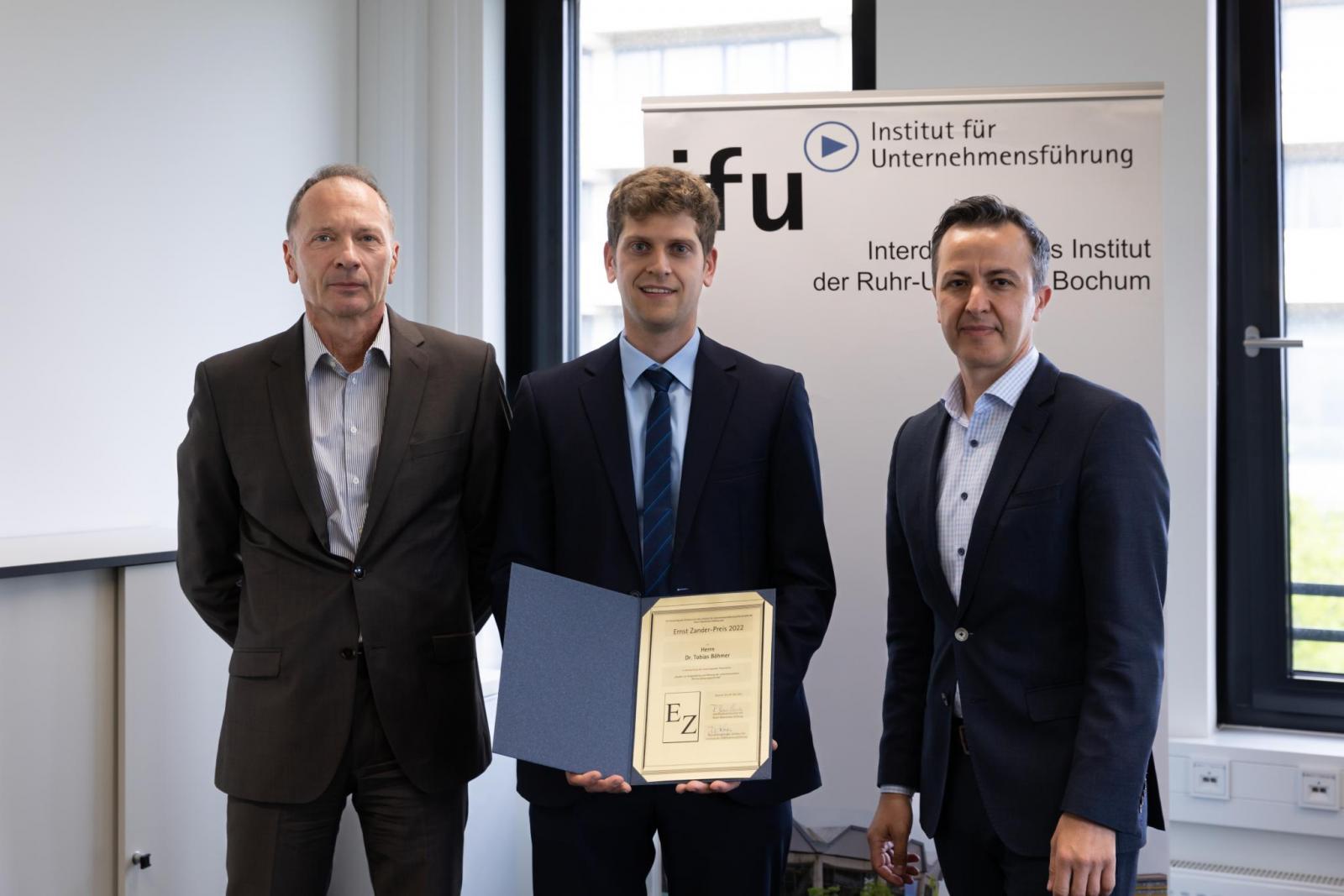Ernst Zander Prize 2022
On 6.5.2022 the Ernst Zander Prize 2022 was awarded. This prize, donated by Prof. Dr. Ernst Zander, is awarded annually for outstanding scientific achievements (primarily dissertations) from all faculties of the Ruhr University, in particular from the faculties of economics, law and engineering. The selection of the prize-worthy works is made -on the suggestion of the Institute for Corporate Management (ifu) of the Ruhr-Universität Bochum- by the board of the Alwin Reemtsma Foundation, of which the Chancellor of the Ruhr-Universität is a member, among others.
The prize winner of the year 2022 is Dr. Tobias Böhmer ("Studies on the design and effect of corporate accounting disclosure", supervisor: Prof. Dr. Devrimi Kaya). The prize was awarded at the graduation ceremony of the Faculty of Economics by Prof. Dr. Heiko Müller.

Das Foto zeigt v.l.n.r. Herrn Prof. Dr. Heiko Müller, Herrn Dr. Tobias Böhmer sowie Herrn Prof. Dr. Devrimi Kaya.
© RUB, Schwettmann
Studies on the design and impact of corporate financial reporting disclosure
In contrast to the legal representatives, external stakeholders (such as investors or financial analysts) have no direct insight into the economic processes of a company, which means they lack the opportunity to directly observe the financial performance. As part of their assessment of the company's economic situation, on the basis of which they make their decisions, these stakeholders are therefore dependent on various forms of public disclosure of financial information. The external communication of accounting information therefore plays a key role in reducing the information inequality between external stakeholders and the better informed company representatives. Against this background, Dr. Böhmer's cumulative dissertation deals with various instruments of corporate disclosure as well as their economic effects. With regard to the communication about the periodic financial statements, which is characteristic for medium-sized (non-listed) companies, it can be shown that voluntary disclosure leads to a lower, security-related cash holding. In contrast, the studies on the disclosure of listed companies analyze the extent to which the design of the information provided affects external capital market participants. As a result, the studies show that companies design their communication with the capital market in an extremely heterogeneous manner and can thus actively shape their information environment. This has far-reaching consequences for other market participants. For example, the studies show that financial analysts are better able to assess the future earnings situation of companies when they engage in more interactive, more precise, more tailored exchanges with company representatives. The studies provide evidence in the context of the current debate about a lack of meaningfulness in corporate communications and the simultaneous information overload of accounting addressees.

